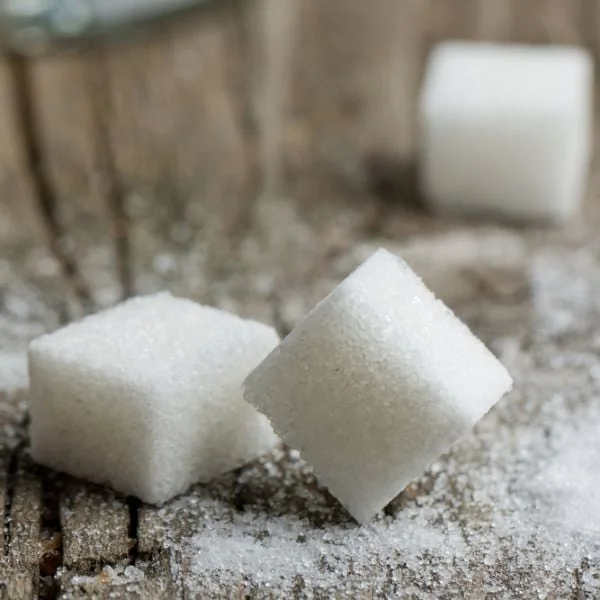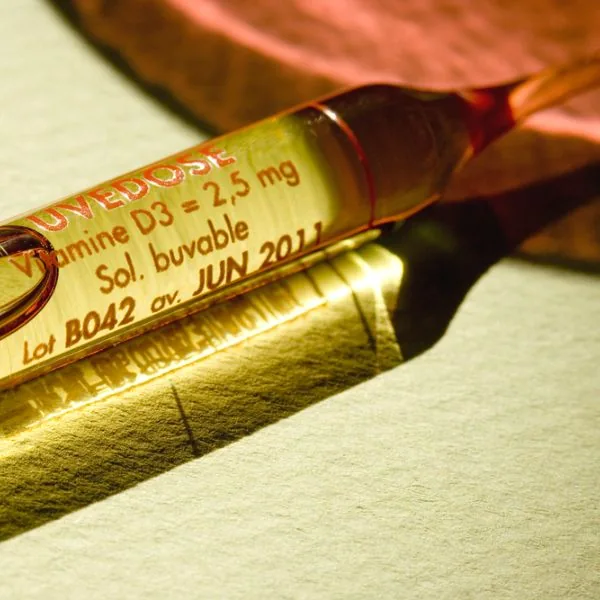If Froot Loops were a favorite cereal of yours growing up, then you might well be wondering – are Froot Loops vegan? What kind of ingredients should I be checking to confirm it?
Well, the bad news is that Froot Loops are quite likely, NOT vegan, with the first concern being the sugar used in the cereal and how it is whitened. The same goes for the vitamin D3 in Froot Loops, and the final ‘nail in the coffin’ is the coloring used, as it may have been developed with animal testing.
This warrants a closer look, so in today’s article we’ll give you a breakdown of Froot Loops from an ingredients standpoint and we’ll elaborate on the ‘problem ingredients’. After that, we’ll also let you know some fruit ring cereal alternatives that can help you ‘scratch that itch’ in a way that is 100% vegan.
If you’re ready, then let’s take a deep dive into Froot Loops and why they’re probably not as vegan as the ingredient list suggests!
Checking the Ingredients of Froot Loops
Probably the least fun part of shopping from a vegan standpoint is reading every ingredient list on just about every product that you buy. There are really so many sneaky ways that companies save a dollar by going with animal-derived ingredients that shopping can become quite time-consuming.
As far as Froot Loops, however, we’ve got you covered, and you can read the ingredients below and then we’ll get into a little more detail on the ones that are the most worrisome.
Here’s what you’ll see on the ingredients label:
- Corn flour blend (whole grain yellow corn flour, degerminated yellow corn flour)
- Sugar
- Wheat flour
- Whole grain oat flour
- Modified food starch, contains 2% or less of vegetable oil (hydrogenated coconut, soybean, and/or cottonseed)
- Oat fiber
- Maltodextrin
- Salt
- Soluble corn fiber
- Natural flavor
- Dyes: red 40, yellow 5, blue 1, yellow 6
- BHT for freshness
Vitamins and Minerals:
- Vitamin C (ascorbic acid)
- reduced iron
- niacinamide
- Vitamin B6 (pyridoxine hydrochloride)
- Vitamin B2 (riboflavin)
- Vitamin B1 (thiamin hydrochloride)
- Folic acid
- Vitamin D3
- Vitamin B12
Problem ingredients with Froot Loops

For the most part, the ingredients look pretty straightforward. The ‘BHT for freshness’ certainly sounds a little suspect, but it’s actually not a problem – BHT is short for Butylated Hydroxytoluene, which is derived from petroleum and used to help prevent oils and fats from going rancid, and also to work with other ingredients such as ascorbic or citric acid.
The ingredients that we are more concerned with are listed below, and we’ll tell you about the why of it in the sections to follow:
- Natural flavor –
- Sugar
- Vitamin D3
- Dyes
What does ‘natural flavor’ mean on an ingredients label, anyways?
‘Natural flavor’ is quite a fine piece of marketing. It sure sounds innocuous – your first thought is ‘hey, it’s natural, it must be good’ but for vegans, it can be a bit of a red flag because of the government guidelines that have to do with what ‘natural flavor’ constitutes when listed in ingredients.
Simply put, according to FDA guidelines, ‘natural flavor’ means flavor derived from an essential oil or it can be an extract that comes from an animal or plant source. Considering the ingredients list, this is LIKELY not a problem as cereals are grain products at their core, but in any case, without contacting Kellogg’s there’s no easy way to determine exactly what source that ‘natural flavor’ is coming from.
So, when you see ‘natural flavor’ in ingredients then it’s definitely something that can give you pause, and for good reason – it glosses over the actual source of that flavor. It would be nice if more companies realized that this is costing them sales, but for now, all that we can do is check the internet, contact the manufacturer, or simply show our displeasure by not buying whatever they’re selling.
Ultimately, in the case of Froot Loops, ‘natural flavor’ is PROBABLY plant sourced but we cannot guarantee that.
Wait, sugar isn’t vegan?

The next ingredient problem that we have is with sugar. While it is certainly sourced from sugar cane, which is about as vegan as it gets, there’s a little more to it when you get to the refining process and preparation for marketing.
In sugar’s case, it is an animal byproduct called ‘bone char’. Bone char comes from the bones of cattle and it’s used in refining and selling sugar as a way to make that sugar all pristinely white.
The good news is that not everyone uses bone char for whitening their sugar – there are certainly other methods that are vegan-friendly, but as bone char is one of the cheapest ways to do it you will find that a lot of companies are going with that method.
With cereal companies, the problem that you can run into is that they tend to have MANY suppliers for the sugars that they will be used in making their cereals. So, in order to determine whether or not one of their suppliers is using bone char, you would actually have to contact the manufacturer, determine their suppliers, and then research each one individually – yikes!
In the end, it basically means that the sugar that is listed in the ingredients falls into a ‘maybe not vegan’ category.
How is Vitamin D3 not vegan?

Froot Loops contain Vitamin D3 which is derived largely from sheep’s wool in the form of lanolin. While the quantities are very tiny, this is an animal derivative and so technically this source of D3 is not going to be considered vegan.
Now, we should mention that Kellogg’s does have a vegan line of cereals and according to Food Beverage Insider, the vitamin D3 with these products is derived from mushroom powder, so you might consider checking out their line of vegan cereals and be helpful, we’ll talk a little about those before we go.
As far as that vitamin D3, however, current data indicates that we are still talking about a lanolin/sheep’s wool derivative, moving Froot Loops into definite ‘non-vegan’ territory.
The artificial colors may be a problem as well
Froot Loops utilize 4 dye colors in order to create the trademark coloration of their trademarked cereal. These colors are as follows:
- Red 40
- Yellow 5
- Blue 1
- Yellow 6
We should note that these colors are NOT made from animal byproducts and the only objection with this ingredient is that some vegans are worried that animal testing may have been involved with determining if the products were safe to consume with these particular dyes and their concentrations per each piece of cereal.
Keep in mind, however, that Kellogg’s doesn’t manufacture these colors and so they may well be sourced from a company that did not test them on animals and if that’s the case, then this certainly isn’t a disqualifier. It’s really a ‘gray area’ without more information on where their coloration for products is sourced from, but we would be amiss if we did not mention this possibility.
Kellogg’s vegan varieties
Now we’ve mentioned that Kellogg’s has some vegan cereal and they do – you can see them here – but just to be on the safe side, we would still advise caution. As we all know, there are quite a lot of companies that will tout vegan products but when it boils down to it, they are technically vegetarian.
We aren’t saying that this is the case with Kellogg’s vegan cereals, only that you’ll want to check each one individually on your own. Some of the examples that they provide on that linked page do look pretty wholesome, such as Sultana bran, Gluten-free Special K, All Bran, and whole grain Kellogg’s Sustain, but as with all products that are marketed as vegan, the best course of action is always ‘trust – but check anyway’.
Vegan alternatives so that you can scratch that Froot Loops itch
Now that we’ve established that Froot Loops have a lot of red flags, we thought that we should mention some alternatives that are definitely vegan so that you can have a ‘Froot Loops’ experience without all the worry. Let’s take a look at a few popular alternatives that you can try instead to see if you like them.
Envirokidz Cheetah Chomps Organic Berry Blast Cereal
One cereal that is both gluten-free and vegan is Envirokids Cheetah Chomps Berry Blast cereal.
With this cereal, where ‘natural flavors’ are concerned they are actually not trying to pull the wool over your eyes. Flavorings for these berry rings come from fruits and vegetables and they even pack an addictive crunch that you and the kids are sure to love (though you may want to hide a box of your own somewhere… just sayin’!).
Proceeds from purchases of this non-GMO Fruit Loops alternative also go towards saving actual cheetahs and other endangered wildlife, so if you want a feel-good alternative that actually tastes good, too, then Cheetah Chomps might be just what the doctor ordered!
Cascadian Farm Organic Fruitful O’s
Cascadian Farm enters the ‘Vegan Froot Loops wars’ with their own sensation offering called ‘Cascadian Farm Organic Fruitful O’s’. These particular O’s don’t skimp on the fruit flavors, as they are derived from actual fruit concentrates, so this is definitely a breakfast cereal alternative that can bring solid flavor to the table without resorting to animal byproducts or animal-derivative ingredients.
We should probably mention that both of these cereals are also sold by Walmart, so if you’re lucky then you might just be able to pick them up at the store. However you do it, though, be sure to get one or both and give them a try.
We think you’ll find that they scratch that ‘Fruit Loops itch’ quite nicely!
FAQ
That’s just about all of the time that we have for today, but before we skedaddle, we thought that we would share a few frequently asked questions to help provide a little more useful information before we go. Let’s take a look!
Are Fruit Loops with marshmallows vegan?
Nope, Fruit Loops with marshmallows are definitely not vegan, as they contain gelatin in the ingredients list. Without knowing exactly how the gelatin is derived, it is best to assume that it is the standard animal-based variety until Kellogg’s is willing to state otherwise right on the box.
Why hasn’t Fruit Loops gone full vegan yet?
You need to keep in mind that Fruit Loops have been around since the 1960’s and as they are quite the distinctive brand, change can and does tend to proceed at a snail’s pace. While most of the ingredients are just about there, until we can say with 100% that the D3, sugars, ‘natural flavor’, and dyes fit a 100% match for the vegan lifestyle, we simply cannot give the green light in good conscience.
How do I contact Kellogg’s to verify ingredients in their cereals?
If you would like to do a little research on your own (and we recommend that you do – it’s a good habit and sometimes you get a really pleasant surprise!), then you may contact Kellogg’s by following this link and visiting their website. Once there, you’ve got the option to email them, mail them physically, and to call their toll-free number doing the hours they’ve designated to be open.
It’s a great way to get your questions answered, so be sure to take advantage of this information if you need it. After all, that’s what it’s there for, and Kellogg’s has been around long enough that we have confidence that you’ll have a good experience with them.
Some closing words
In today’s article we’ve answered the question ‘Are Froot Loops Vegan?’ and sadly, we can’t say that they are with 100% confidence. Starting off, descriptions such as ‘natural flavor’ may indicate plant or animal-derived ingredients, so the intentional vagueness of this doesn’t inspire a lot of confidence.
Next, the sugar that is used may be whitened with bone char and if that’s the case, then they’re definitely not vegan so much at all. Finally, with vitamin D3 being lanolin derived (although don’t forget that Kellogg’s has talked about a mushroom-derived D3) and with coloration that may have undergone testing with animals, we just can’t give it a ‘vegan approved’ stamp in good faith.
With a little luck, Kellogg’s will eventually come around and give us our nostalgic favorite back, but for now, we simply cannot call Fruit Loops vegan.
Thanks so much for your time, dear readers, and we sure hope to see you again soon!







David learned to cook at an early age after his mother told him that he couldn't live on pizza forever, Dave uses his modest kitchen skills to recreate sorely-missed recipes from home and to occasionally make new favorite ones from places he is visiting.